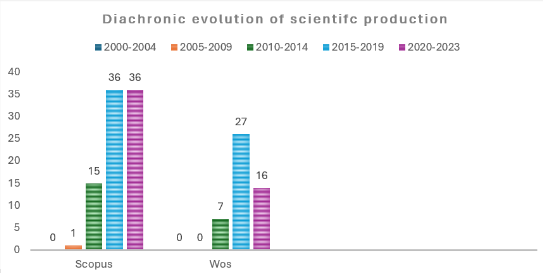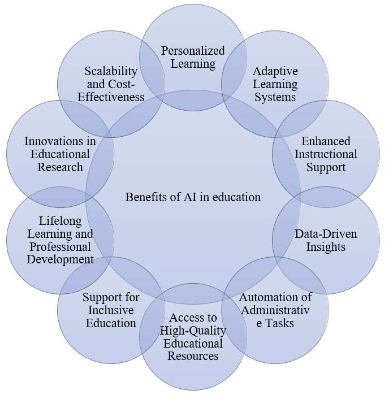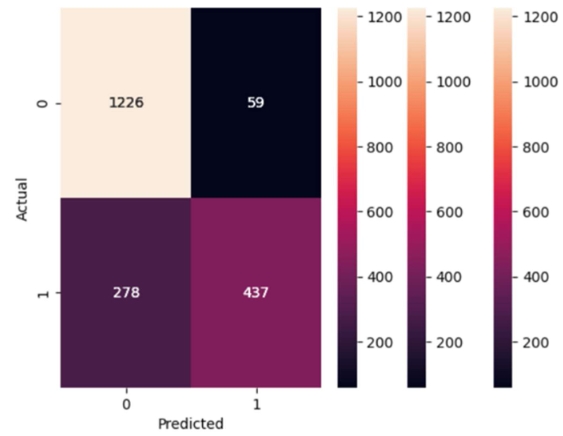Shaping success: How instructional leadership influences teaching practices and self-efficacy
Abstract
This study explores teachers’ perceptions of instructional leadership qualities that enhance self-efficacy and classroom practices through Q-methodology, using a snowball sample of state-certified teachers from Pennsylvania and Ohio. Key findings highlight leadership qualities such as positive reinforcement, support, constructive feedback, modeling, trust, autonomy, and collaboration as crucial for teacher growth and instructional effectiveness. Differences in perceptions between elementary and secondary teachers are also examined. The results are organized into five thematic profiles: Sculptors of Curiosity and Creativity, Orchestrators of Harmony and Growth, Champions of Potential and Possibility, Architects of Confidence and Curiosity, and Masterminds of Adaptability and Structure. The study provides valuable insights into leadership traits that foster teacher development and improve classroom outcomes.
References
[1]Day C, Gu Q, Sammons P. The Impact of Leadership on Student Outcomes. Educational Administration Quarterly. 2016; 52(2): 221-258. doi: 10.1177/0013161x15616863
[2]Day C, Sammons P, & Gorgen K. Successful school leadership. Education Development Trust; 2020.
[3]Hallinger P, Hosseingholizadeh R, Hashemi N, et al. Do beliefs make a difference? Exploring how principal self-efficacy and instructional leadership impact teacher efficacy and commitment in Iran. Educational Management Administration & Leadership. 2017; 46(5): 800-819. doi: 10.1177/1741143217700283
[4]Bandura A. Self-efficacy: The exercise of control. Freeman; 1997.
[5]Blase J, & Blase J. Handbook of instructional leadership: How successful principals promote teaching and learning. Corwin Press; 2004.
[6]Lazarides R, Warner LM. Teacher Self-Efficacy. Oxford Research Encyclopedia of Education. Published online May 29, 2020. doi: 10.1093/acrefore/9780190264093.013.890
[7]Li S. The effect of teacher self-efficacy, teacher resilience, and emotion regulation on teacher burnout: a mediation model. Frontiers in Psychology. 2023; 14. doi: 10.3389/fpsyg.2023.1185079
[8]Schipper T, Goei SL, de Vries S, & van Veen K. Developing teachers’ self-Efficacy and adaptive teaching behaviour through lesson study. International journal of educational research. 2018; 88: 109-120. doi: 10.1016/j.ijer.2018.01.011
[9]Lazarides R, Watt HMG, Richardson PW. Teachers’ classroom management self-efficacy, perceived classroom management and teaching contexts from beginning until mid-career. Learning and Instruction. 2020; 69: 101346. doi: 10.1016/j.learninstruc.2020.101346
[10]Zee M, Koomen HMY. Teacher Self-Efficacy and Its Effects on Classroom Processes, Student Academic Adjustment, and Teacher Well-Being. Review of Educational Research. 2016; 86(4): 981-1015. doi: 10.3102/0034654315626801
[11]Schunk DH, DiBenedetto MK. Motivation and social cognitive theory. Contemporary Educational Psychology. 2020; 60: 101832. doi: 10.1016/j.cedpsych.2019.101832
[12]Hallinger P, Wang WC. Assessing Instructional Leadership with the Principal Instructional Management Rating Scale. Springer International Publishing; 2015. doi: 10.1007/978-3-319-15533-3
[13]Day C, & Sammons P. Successful school leadership. Education Development Trust; 2016.
[14]Zuckerman SJ, O’Shea C. Principals’ Schema: Leadership Philosophies and Instructional Leadership. Journal of School Leadership. 2020; 31(4): 274-296. doi: 10.1177/1052684620966063
[15]Hitt DH, Tucker PD. Systematic Review of Key Leader Practices Found to Influence Student Achievement. Review of Educational Research. 2016; 86(2): 531-569. doi: 10.3102/0034654315614911
[16]Darling-Hammond L, Bae S, Cook-Harvey C, et al. Pathways to New Accountability Through the Every Student Succeeds Act. Learning Policy Institute; 2016. doi: 10.54300/966.414
[17]Good M. “Who are these for? Is this for the teacher?”: Understandings of expertise and evaluation in the era of ESSA. Education Policy Analysis Archives. 2023; 31. doi: 10.14507/epaa.31.7807
[18]Balcı S, & Özkan H. Development, implementation, and evaluation of an effective feedback program for school principals to improve in-class teaching. Shanlax International Journal of Education. 2023; 11(S1): 242-258. doi:10.34293/ education.v11iS1-July.6283
[19]Sanchez JE, Paul JM, Thornton BW. Relationships among teachers’ perceptions of principal leadership and teachers’ perceptions of school climate in the high school setting. International Journal of Leadership in Education. 2020; 25(6): 855-875. doi: 10.1080/13603124.2019.1708471
[20]Leithwood K, Jantzi D, Steinbach R. Leadership and other Conditions which Foster Organizational Learning in Schools. Organizational Learning in Schools. Published online November 17, 2021: 67-90. doi: 10.1201/9781003077459-5
[21]Thessin RA. Establishing productive principal/principal supervisor partnerships for instructional leadership. Journal of Educational Administration. 2019; 57(5): 463-483. doi: 10.1108/jea-09-2018-0184
[22]Stronge JH, & Xu X. Qualities of effective principals. ASCD; 2021.
[23]Kilag OKT, Uy FT, Abendan CFK, & Malbas MH. Teaching leadership: An examination of best practices for leadership educators. Science and Education. 2023.
[24]Meng S. Enhancing Teaching and Learning: Aligning Instructional Practices with Education Quality Standards. Research and Advances in Education. 2023; 2(7): 17-31. doi: 10.56397/rae.2023.07.04
[25]Kraft MA, Gilmour AF. Can Principals Promote Teacher Development as Evaluators? A Case Study of Principals’ Views and Experiences. Educational Administration Quarterly. 2016; 52(5): 711-753. doi: 10.1177/0013161x16653445
[26]Moss CM, Brookhart SM. Advancing formative assessment in every classroom: A guide for instructional leaders. ASCD; 2019.
[27]Al Maktoum SB, Al Kaabi AM. Exploring teachers’ experiences within the teacher evaluation process: A qualitative multi-case study. Cogent Education. 2024; 11(1). doi: 10.1080/2331186x.2023.2287931
[28]Thornton, B., Zunino, B., & Beattie, J. (2020). Moving the dial: Improving teacher efficacy to promote instructional change. Education, 140(4), 171-180.
[29]Hajovsky DB, Chesnut SR, Jensen KM. The role of teachers’ self-efficacy beliefs in the development of teacher-student relationships. Journal of School Psychology. 2020; 82: 141-158. doi: 10.1016/j.jsp.2020.09.001
[30]Meyer A, Richter D, & Hartung-Beck V. The relationship between principal leadership and teacher collaboration: Investigating the mediating effect of teachers’ collective efficacy. Educational management administration & leadership. 2022; 50(4): 593-612. doi: 10.1177/1741143220945698
[31]Mbua EM. Principal Leadership: Raising the Achievement of All Learners in Inclusive Education. American Journal of Education and Practice. 2023; 7(1): 1-25. doi: 10.47672/ajep.1313
[32]Howell WG. Results of President Obama’s Race to the Top. Education Next; 2015.
[33]Herman R, Gates S, Arifkhanova A, et al. School Leadership Interventions Under the Every Student Succeeds Act: Evidence Review: Updated and Expanded. Published online 2017. doi: 10.7249/rr1550-3
[34]Stevenson M, Hedberg JG, O’Sullivan KA, et al. Leading learning: the role of school leaders in supporting continuous professional development. Professional Development in Education. 2016; 42(5): 818-835. doi: 10.1080/19415257.2015.1114507
[35]Watts S, Stenner P. Doing Q Methodological Research: Theory, Method and Interpretation. Published online 2012. doi: 10.4135/9781446251911
[36]Rogers RS. Q Methodology. Rethinking Methods in Psychology. Published online 1995: 178-192. doi: 10.4135/9781446221792.n12
[37]Brown SR. Political subjectivity: Applications of Q methodology in political science. Yale University Press; 1980.
[38]Stephenson W. The study of behavior: Q technique and its methodology. University of Chicago Press; 1953.
[39]Webler T, Danielson S, & Tuler S. Using Q method to reveal social perspectives in environmental research. Social and Environmental Research Institute; 2009.
[40]Tschannen-Moran M, & Hoy WA. Teacher efficacy: Capturing an elusive construct. Teach. Teach. Educ. 2001; 17: 783-805. doi: 10.1016/S0742-051X(01)00036-1
[41]Herrington N, & Coogan J. Q methodology: An overview. Research in Teacher Education; 2011.
Copyright (c) 2025 Author(s)

This work is licensed under a Creative Commons Attribution 4.0 International License.









